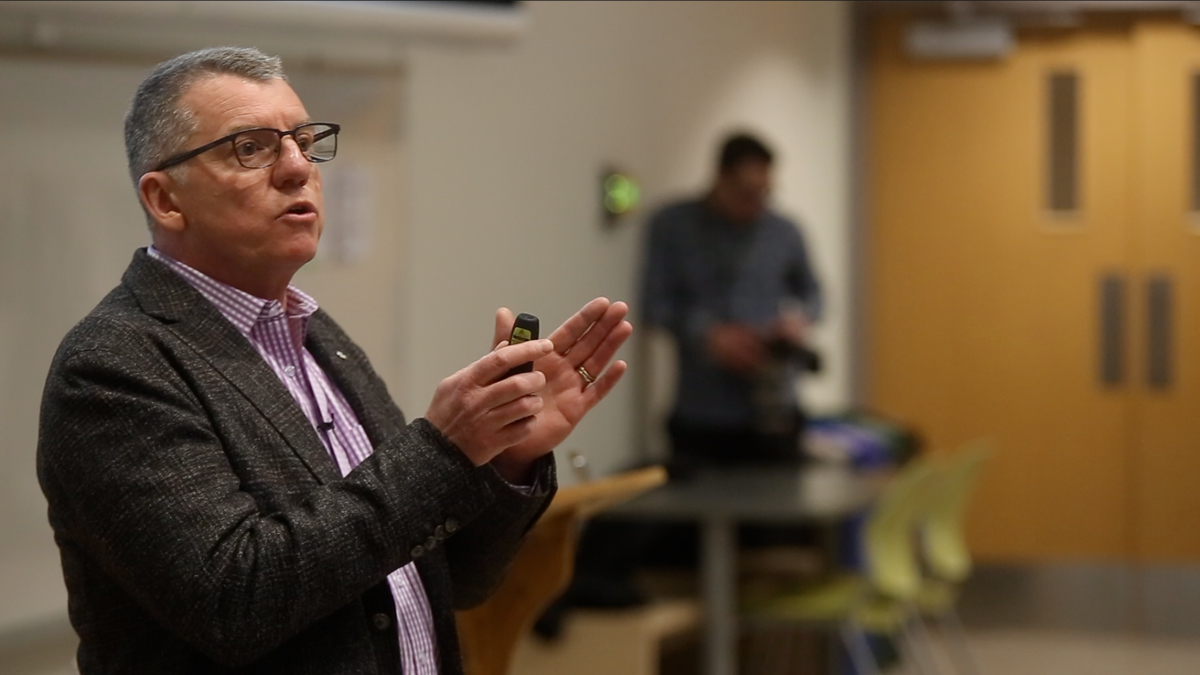University presidents’ compensation to be regulated by provincial government
 Rosty Soroka
Rosty SorokaThe provincial government has announced new regulations for the compensation of post-secondary presidents, including capping their base salaries and eliminating perks like sports club memberships and executive allowances.
By April 14, 2020, any new presidential contracts for the province’s 20 public post-secondary institutions will have to follow these new regulations, resulting in up to $5.2 million in savings per year for post-secondary institutions across Alberta. The regulations make the following changes:
- Base salaries for the presidents of the University of Alberta and University of Calgary cannot exceed $447,000.
- Executive bonuses will no longer be allowed.
- Severance pay will be limited to a maximum of 52 weeks.
- Health benefits and pensions will have to follow new guidelines.
- Perks including sports memberships, signing bonuses, and executive allowances will be prohibited.
These new regulations are part of a three-year review of all public agencies, commissions, and boards in Alberta. With its current post-secondary executive compensation, Alberta has the highest presidential salaries of any province, but that will not be the case under the new regulations. Minister of Advanced Education Marlin Schmidt said these cuts will benefit students.
“This new policy is about being responsible and accountable to faculty, staff, and students, and ensuring that our institutions are able to provide accessible, affordable, high-quality post-secondary education,” he said. “For too long executive salaries have been left unchecked. This led to compensation packages that were out of touch with those in the broader public sector and with the expectations of Albertans.”
U of A President David Turpin has come under fire recently for his compensation of about $824,000 including his base salary and benefits and was accused by Schmidt of “lining his pockets” on the backs of students.
Turpin’s contract doesn’t expire until June 30, 2020, and Board of Governors Chair Michael Phair said it’s likely the provincial government will allow the university to wait until the contract ends before implementing the changes. If Turpin continues on as president for another term his current base salary of $500,000 will need to be clawed back to $447,000 and his $45,000 per year executive allowance for club memberships, use of his car, parking, and housing will no longer be allowed. Turpin is also currently eligible for performance bonuses, which will be prohibited under the new regulations.
Turpin declined to comment for this story.
Schmidt said the provincial government is still committed to maintaining the same funding to post-secondary institutions and won’t reduce the Campus Alberta Grant. He said the savings from the salary cuts will be reallocated by the institutions for the benefit of students, staff, and faculty.
With cuts to salaries, benefits, and bonuses, Phair said the Board of Governors is worried about remaining competitive among top Canadian and international universities.
“We’re one of the largest (universities) in Canada and we compete there, but we also compete internationally, particularly with the U.S. and England,” he said. “There are a variety of considerations that someone seeking a president position looks at, but compensation is certainly part of it.”
With students expressing their frustrations with Turpin’s salary and the U of A’s budget, Students’ Union president Marina Banister said students will have opinions on these new regulations.
“From a student perspective, I can very much see how it could be frustrating to see how much executives are being paid,” Banister said. “I think it can breed a lot of frustration seeing people being paid an exorbitant amount of money when students are struggling to better themselves through education.”
However, Banister said the student advocates haven’t taken a stance on executive salaries, and that they are up to the Board of Governors. They are still waiting for the results of the tuition review promised by the provincial government, which was slated to be released in the fall of 2017 but still hasn’t materialized.
“We need to ensure that the entire system is looked at and not just this one piece of the puzzle,” Students’ Union vice-president (external) Reed Larsen said. “All of our messaging has been clear: release the tuition review, release the funding framework review, doing this piece-meal one at a time causes nothing but confusion.”




